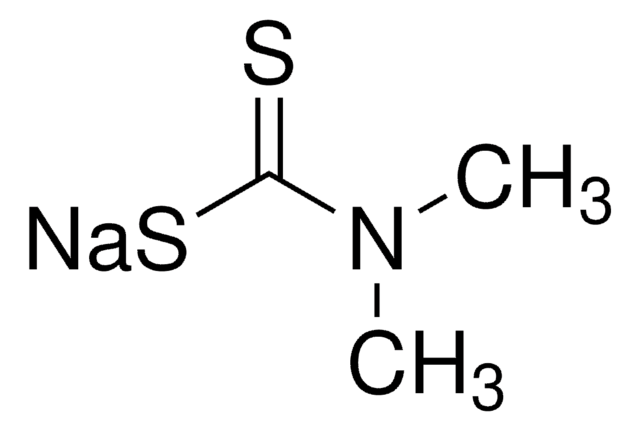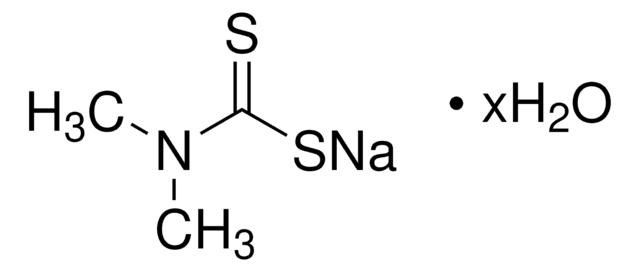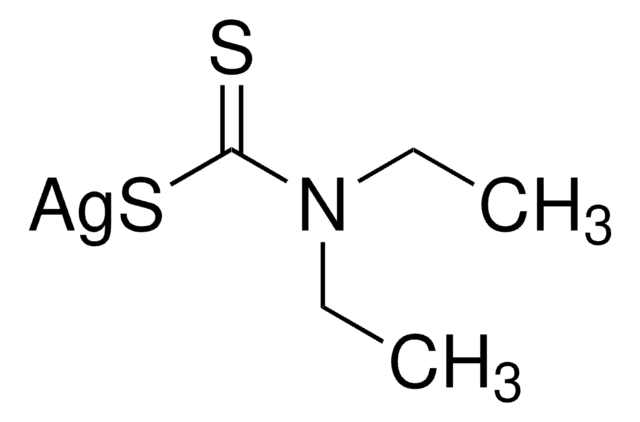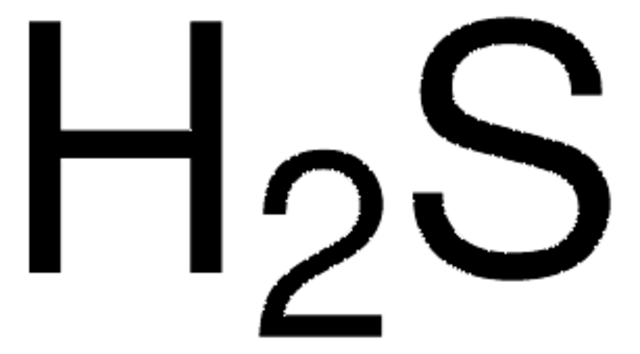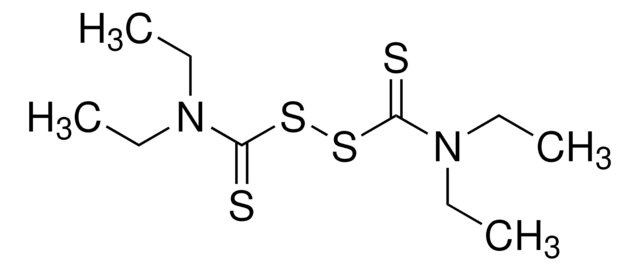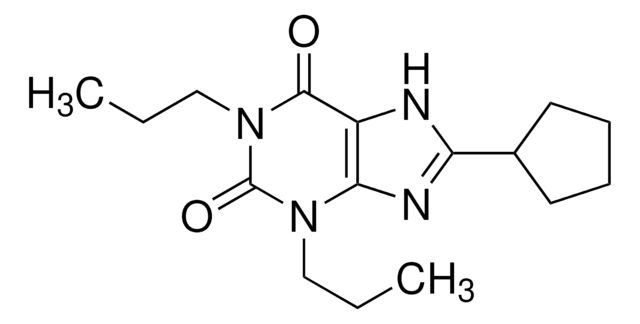71480
Sodium diethyldithiocarbamate trihydrate
ACS reagent, for the determination and separation of heavy metals, ≥97%
Synonym(s):
Cupral, Diethyldithiocarbamic acid sodium salt
About This Item
Recommended Products
grade
ACS reagent
Quality Level
vapor density
5.9 (vs air)
Assay
≥97%
form
powder
quality
for the determination and separation of heavy metals
mp
95-98.5 °C (lit.)
cation traces
Cd: ≤5 mg/kg
Co: ≤5 mg/kg
Cr: ≤5 mg/kg
Cu: ≤5 mg/kg
Fe: ≤5 mg/kg
Mn: ≤5 mg/kg
Ni: ≤5 mg/kg
Pb: ≤5 mg/kg
Zn: ≤5 mg/kg
SMILES string
[H]O[H].[H]O[H].[H]O[H].CCN(CC)C(=S)S[Na]
InChI
1S/C5H11NS2.Na.3H2O/c1-3-6(4-2)5(7)8;;;;/h3-4H2,1-2H3,(H,7,8);;3*1H2/q;+1;;;/p-1
InChI key
WWGXHTXOZKVJDN-UHFFFAOYSA-M
Looking for similar products? Visit Product Comparison Guide
General description
Application
Biochem/physiol Actions
Other Notes
Signal Word
Danger
Hazard Statements
Precautionary Statements
Hazard Classifications
Acute Tox. 4 Oral - Eye Dam. 1 - Skin Irrit. 2
Storage Class Code
11 - Combustible Solids
WGK
WGK 3
Flash Point(F)
Not applicable
Flash Point(C)
Not applicable
Personal Protective Equipment
Choose from one of the most recent versions:
Already Own This Product?
Find documentation for the products that you have recently purchased in the Document Library.
Customers Also Viewed
Our team of scientists has experience in all areas of research including Life Science, Material Science, Chemical Synthesis, Chromatography, Analytical and many others.
Contact Technical Service
